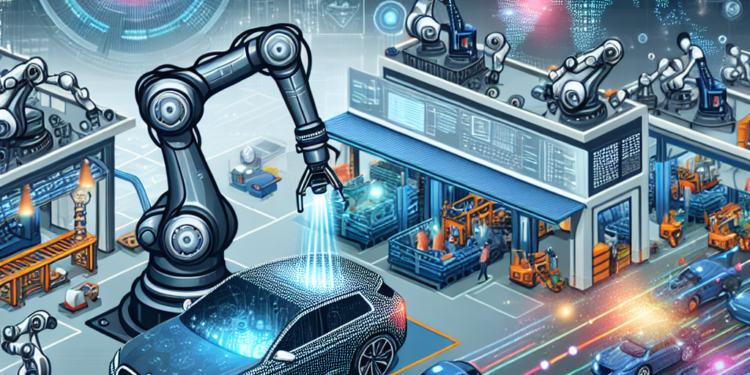The automotive industry has been continuously evolving over the years, with advancements in technology playing a significant role in shaping its future. One of the most exciting developments in recent years is the integration of artificial intelligence (AI) in the automotive sector. AI has the potential to revolutionize the way vehicles are designed, manufactured, and operated, leading to greater efficiency, safety, and overall success in the industry.
One prominent case study that illustrates the impact of AI in the automotive industry is Tesla Inc., the American electric vehicle and clean energy company founded by Elon Musk in 2003. Tesla has been at the forefront of AI integration in automotive technology, with its advanced driver assistance systems (ADAS) and self-driving capabilities setting new standards in the industry.
Tesla’s Autopilot system, powered by AI algorithms, uses a combination of sensors, cameras, and radars to gather real-time data about the vehicle’s surroundings and make autonomous driving decisions. The system can detect obstacles, follow lane markings, and adjust speed accordingly, creating a safer and more efficient driving experience for Tesla owners.
The use of AI in Tesla’s vehicles has not only enhanced the driving experience but also improved overall safety on the roads. Studies have shown that vehicles equipped with AI-driven ADAS systems have a lower chance of being involved in accidents compared to traditional vehicles without such technology. This has led to increased consumer trust in Tesla’s self-driving capabilities and has opened up new opportunities for AI integration in the automotive industry as a whole.
Aside from safety benefits, AI technologies have also significantly improved the efficiency and performance of vehicles. Tesla’s AI-driven software updates have allowed for continuous improvements in vehicle functionality, including better energy efficiency, faster charging times, and enhanced vehicle performance. This has helped Tesla maintain its competitive edge in the electric vehicle market and has set a new standard for automotive technology.
In addition to Tesla, other automakers have also started implementing AI technologies in their vehicles to stay competitive in the rapidly evolving market. German automaker BMW, for example, has been collaborating with tech companies to develop AI-driven systems for its vehicles. BMW’s AI-powered driver assistance systems, such as the BMW Personal CoPilot, provide advanced features like self-parking, lane-keeping assistance, and traffic jam assistant, making driving more convenient and safer for the driver.
The integration of AI in the automotive industry has not been without its challenges, however. One major concern is the safety and security of AI-driven systems, especially in autonomous vehicles. There have been instances of AI malfunctions leading to accidents, raising questions about the reliability and robustness of these systems in real-world scenarios. Automakers and tech companies are working together to address these issues and improve the safety and security of AI technologies in vehicles.
Another challenge is the regulatory environment surrounding AI in the automotive industry. As AI technologies become more prevalent in vehicles, there is a need for clear regulations and standards to ensure the safe and ethical use of these systems. Governments and regulatory bodies around the world are working on establishing guidelines for AI in vehicles to address concerns about data privacy, security, and liability.
Despite these challenges, the future of AI in the automotive industry looks promising. As technology continues to advance, AI-driven systems will become more sophisticated and reliable, leading to a new era of smart and connected vehicles. Automakers are investing heavily in AI research and development to stay ahead of the competition and meet the growing demands of consumers for safer, more efficient vehicles.
In conclusion, the integration of AI in the automotive industry is a game-changer that promises to transform the way vehicles are designed, manufactured, and operated. Companies like Tesla and BMW are leading the way in leveraging AI technologies to create safer, more efficient vehicles for consumers. With continuous advancements in AI research and development, we can expect to see even more innovative and revolutionary uses of AI in the automotive industry in the years to come.













